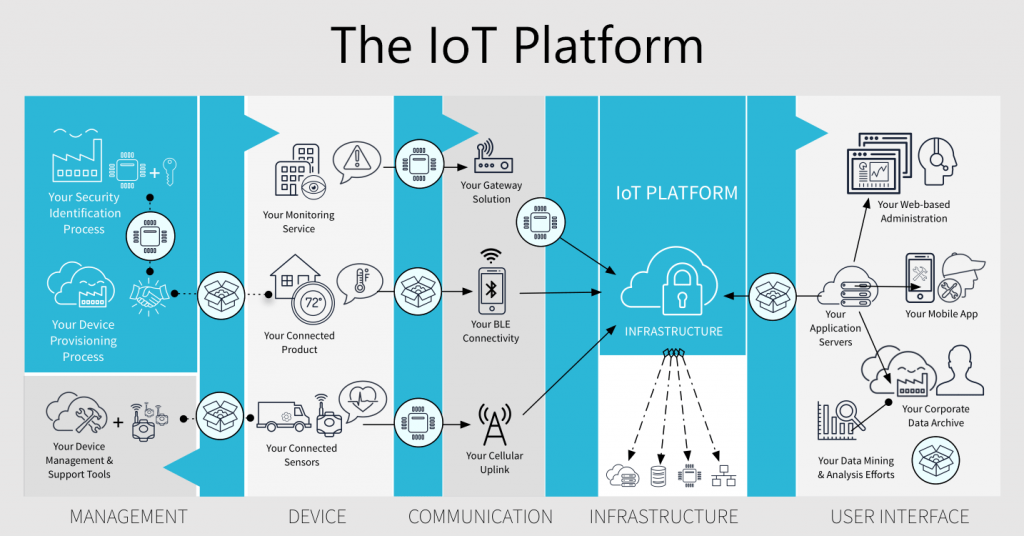Questions To Ask Before Starting An IoT Project
Questions to ask while planning your Internet of Things transformation process – Tips how to build your IoT project and what issues to avoid.
The Internet of Things is helping many companies gain new and vital insights how their businesses run. Digital sensors are being embedded in product offerings ranging from tea and coffee makers to refrigerators, television sets and even aircraft engines to gain valuable insights required to understand and plan further growth of operational processes and product quality.
IoT applicability is growing by the day. Organizations desiring to benefit from IoT transformation have to start with a project – an IoT project. So how do they get started? Answering a few questions may help them to work out their IoT project in a more organized manner.
Area 1: Organization
Do you have an IoT team?
An IoT team is usually multi-tasking and cross-functional with interdisciplinary skill sets i.e. it is composed of individuals having knowledge about IoT application development using disruptive technologies, networking, designing system architectures, database storage and retrieval etc. Moreover, the team members should possess the experience required to kick start the project and keep it running by making optimum usage of technologies made available to them.
Integration of IT and IoT processes and teams
While IoT functions as a strong front-end and captures vital data from different sources, it is the IT department and processes that actually make use of that data to generate important insights. IoT and IT processes have to work in tandem to produce tangible actionable results.

Therefore, both the processes require to be integrated in the correct manner to make IoT work.
Right leadership
Teams need project leads to guide them in the correct direction. An IoT project lead requires an understanding of both IT and IoT core processes to make informed decisions and assign proper work to the team. The project lead should also possess strong management skills to understand the strength and weaknesses of team members, and get work delivered in the right manner and at the right time.
Area 2: Strategy
Is your project “sandbox” flexible?
IoT technologies may be disruptive in nature but they’re still evolving. There are still many unknowns regarding the applicability of technologies in real life scenarios. Depending upon the business model of the organization and the nature of project deliverables, there could be a probability that the team might face certain technical issues and may require time to resolve them. The management should work out a budget keeping these uncertainties in mind and maintain enough funds to sustain the project until it completes and starts delivering profits.
Do you have a strategic IoT roadmap?
An IoT roadmap is not that easy to envision or build – it’s much harder than creating product roadmaps using “standard” or “normal” technologies in the market today. IoT systems can be complex. Each and every layer of the technology stack concerning device hardware components, device software, communications and protocols, cloud platforms and applications, etc. needs to integrate and work in a streamlined manner so as to create a workable IoT solution. The roadmap should be flexible enough to answer current IoT challenges and still maintain enough scope to address future IoT challenges.
Does your IT infrastructure have enough scope to consume IoT processes?
The size of data collected by IoT processes can increase exponentially over time and eventually servers with large storage capacities and faster processing times will be needed to keep the IoT processes functional. So, do you plan to have a central data repository and a dedicated network to collect and process IoT data, or are you planning to use an edge computing approach in which ... Read more.
Advertise on APSense
This advertising space is available.
Post Your Ad Here
Post Your Ad Here
Comments